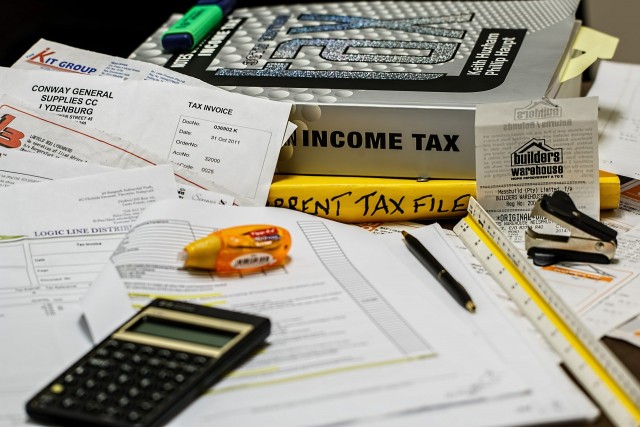Can You Deduct Back Taxes on Your Tax Return?
With millions of small business owners who hold pass-through entities, it is not uncommon to see folks struggle to keep up with their taxes. After all, having such a venture means that they are liable for self-employment, federal, and state taxes. When those responsibilities are paired with some inexperience, one may find themselves facing a hefty payment that the Internal Revenue Service, or the IRS, expect from them. In 2009, for instance, there was a total of $83 billion owed in back taxes by 8.2 million Americans. Hence why people asking if you can deduct back taxes on a tax return are becoming more common.
Unfortunately, if you have found yourself in a situation where you are having to deal with this problem, you will not be able to derive much benefit from it in terms of your future tax returns. In other words, no, you cannot deduct back taxes paid. To help you understand why this is the case, as well as how you can start strategizing to take advantage of your other tax payments, we have put together a brief guide explaining the matter.
What Are Back Taxes?
First and foremost, you must understand what back taxes are. Unlike most other types of liabilities that you could have toward the IRS, this one represents a delinquent amount that is as a byproduct of non-payment. In translation, when you fail to cover your taxes within the allowable window during the subsequent year, they become past due. Expectedly, the government will almost momentarily start penalizing you with some of the most relentless interest rates and fines known.
This is why you should never allow yourself to accumulate an unbearable amount of debt owed to the IRS as the amount will rapidly snowball into many times the original figure. Additionally, the government has the right to do everything from taking money directly out of your paychecks to sending you to jail once you fail to act.
How the IRS Views Deducting Back Taxes on Your Tax Return
Although the IRS certainly wants to receive their money sooner rather than later, they have become relatively flexible when it comes to people paying off their debt. Instead of forcing everyone to send a lump sum, they offer installment plans that help individuals get caught up and avoid many devastating consequences. These are usually the types of payments that people wonder about when they talk about the deductibility of back taxes.
After all, if you are paying $200 per month to meet the requirements of a newly established agreement with the IRS, you would generally consider that to be just another business expense, right? Well, yes. The same principle does not apply once the tax season comes around, however. The reason why is that federal taxes, which are the largest and most common type of taxes owed to the government, are non-deductible in the first place. For instance, even if you were to pay your federal tax liability on time, you would not be able to deduct the actual tax amount on the tax return as doing so is counterintuitive.
What About Tax Penalties and Interest?
Since the principal amount of the balance is non-deductible, you may wonder if the same rule applies to penalties and interest that accumulated on your debt. Just think about someone whose $2,000 tax debt rose to north of $10,000 courtesy of compounding interest that is further amplified by seemingly endless penalties. This is not an uncommon occurrence as the law is written in a way that allows the government to place make these types of adjustments.
Once again, unfortunately, you will not be able to benefit from your interest and penalty payments on the subsequent tax return. The easiest way to explain why is to consider these amounts no different than any other type of delinquent fee that your business was assessed. For instance, if you have to pay a parking ticket while having lunch with a client, you would not be able to deduct that expense. Even though it was technically incurred during the regular course of business, the IRS does not let taxpayers reduce their tax liabilities by amounts that come to life as a consequence of their wrongdoing.
How Itemized Deductions Relate to Deducting Back Taxes on Your Tax Return
One way that you could take advantage of some of your payments is to look into the itemized deductions for the property, state, and local taxes. Although you get to take half of your self-employment tax off as well, this is something that every tax software or accountant automatically applies, which is why it cannot be listed as a “hidden gem.” The remaining types of taxes, however, are commonly overlooked by millions of taxpayers who do not fill out a Schedule A when they are completing their Form 1040.
This is a schedule where you get to itemize some of the less common expenses that can add up to a lot more than the standard deduction. So, you may have the ability to get more than the standard $12,200. Of course, if your itemized deductions do not total above that amount, you should not itemize. Also, if you reside in one of the following states, which are all free of state taxes, it may be hard to derive a lot of benefit from this:
- Alaska
- Florida
- Nevada
- South Dakota
- Texas
- Washington
- Wyoming
Nonetheless, if you live in any of the remaining 43 states and constantly pay a hefty amount in state taxes, you should consider taking an itemized deduction on it. Doing so could help reduce your federal liability, thus, reducing the likelihood of your falling behind.
Finally, do not forget the importance of having a good accountant. By getting a CPA, you would be able to avoid a wide range of situations that you may not even be aware of. Given these professionals’ training and experience, having one of them on your team could be the easiest way to sidestep any future tax issues. So, click on the following links to get a free consultation or pricing on our virtual tax prep services.








Comments